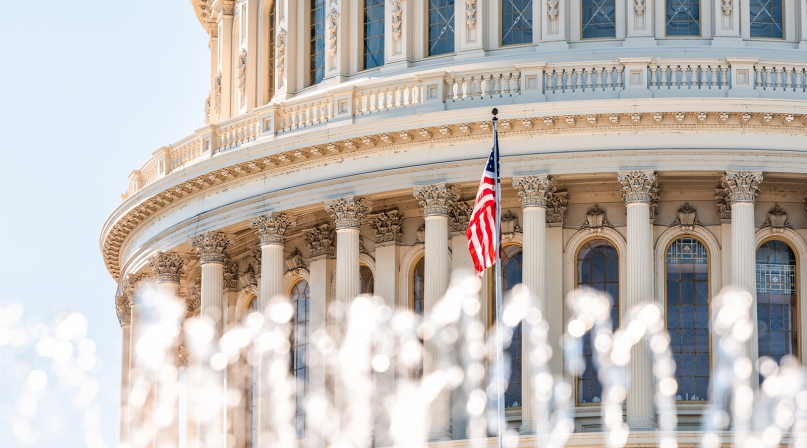House Appropriations Subcommittee hosts hearing on FY 2022 HHS budget request
Author

Blaire Bryant
Upcoming Events
Related News

Key Takeaways
On April 15, the House Appropriations Subcommittee on the Departments of Labor, Health and Human Services, Education and Related Agencies held a hearing on the Biden administration’s FY 2022 discretionary budget request for the Department of Health and Human Services (HHS). HHS Secretary Xavier Becerra, who was narrowly confirmed by the Senate for the position last month, testified before the Subcommittee on the department’s $131.7 billion discretionary request. The request represents a 23.5 percent increase over the FY 2021 enacted level, not including emergency COVID-19 appropriations, and includes funding for a wide variety of health programs important to counties, particularly as we continue to respond to the COVID-19 pandemic and pivot towards recovery.
Despite some concerns from the minority over the HHS request’s high price tag, Subcommittee members expressed support for investments in the areas of mental and behavioral health, maternal health and rural health care. Another key highlight stemming from the hearing is Sec. Becerra’s commitment on behalf of HHS to work with the local governments on these issues.
HHS programs and policy issues important to counties were discussed throughout the hearing. The budget request proposes increased funding for the Substance Abuse and Mental Health Services Administration (SAMHSA), including $1.6 billion for the Community Mental Health Services Block Grant (MHBG), a key county priority. Both Sec. Becerra and Subcommittee members stressed the need to invest in behavioral health, particularly given the negative impact of the COVID-19 pandemic on mental health and substance use issues.
Acknowledging the disproportionately high maternal mortality rate for Black and American Indian/Alaska Native women, Sec. Becerra also called attention to the more than $200 million proposed to reduce maternal mortality and morbidity. Counties across the country are working to improve maternal health outcomes and are key stakeholders and practitioners in this space. Sec. Becerra testified that the funding would go towards implementing evidence-based interventions to address critical gaps in maternity care service delivery and improve maternal health outcomes.
As the pandemic continues to create a shortage of quality child care, Sec. Becerra highlighted the $19.8 billion request for the Administration for Children and Families (ACF) for early care and education programs – more than double the FY 2021 enacted level. This request increases funding to vital programs like Head Start and the Child Care Development Block Grant, which aim to promote school readiness for children and provide subsidies for low-income families to access affordable, high quality child care. The request additionally proposes $100 million in new competitive grants for states and localities to advance reforms that would reduce the overrepresentation of children and families of color in the child welfare system and address the disparate experiences and outcomes of these families.
Sec. Becerra also highlighted that the FY 2022 discretionary budget request supports HHS’ continued focus on addressing the needs of rural communities. He stated that HHS is seeking to boost the number of practitioners in rural areas, increase funding for rural programs and ensure those living in rural areas have adequate broadband in order to access telehealth services. Broadband issues and diminished access to care in rural communities remains a critical issue for counties, particularly in the face of the COVID-19 pandemic.
Counties are grateful for our federal partners’ commitment to key health and human services programs that provide critical financial and technical assistance at the local level. NACo will continue to monitor and advocate for county priorities throughout the FY 2022 appropriations process.
Additional Resources
Advocacy
U.S. House Appropriations Subcommittee holds hearing on the state of national public health infrastructure
On February 24, the U.S. House Appropriations Subcommittee on the Departments of Labor, Health and Human Services, Education and Related Agencies held a hearing titled “Ready or Not: U.S. Public Health Infrastructure.”

Related News

Drug tracking software helps counties identify trends, save lives
Florida counties are using an artificial intelligence tool called Drug TRAC to track and report drug trends, with the aim of providing quicker outreach and saving lives.

White House Executive Order establishes national substance use disorder response
On January 29, the White House issued an Executive Order (EO) establishing the Great American Recovery Initiative, a new federal effort aimed at coordinating a national response to substance use disorder (SUD).

USDA and HHS release new dietary guidelines
On January 7, U.S. Department of Agriculture Secretary Brooke Rollins and U.S. Department of Health and Human Services Secretary Robert F. Kennedy, Jr. unveiled the new Dietary Guidelines for Americans, 2025–2030.

